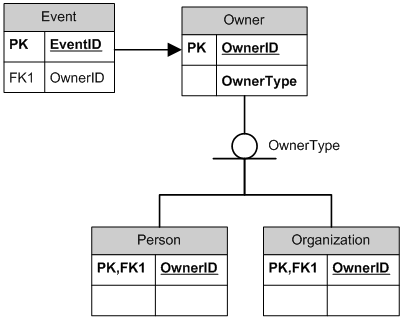I'm trying to implement something similar to Ruby on Rails' polymorphic relationships. I have the following three tables :
Events Users Organisations
An event can be owner by either a user or an organisation, so my Events table includes the columns: owner_type and owner_id.
I can easily list all events that belong to either users or organisations through an inner join and where clause, however, is there a way to make the join table conditional based on the value of the owner_type column, allowing all events to be listed together, regardless of owner_type?
I hope that makes sense.
Any advice appreciated.
Thanks.

